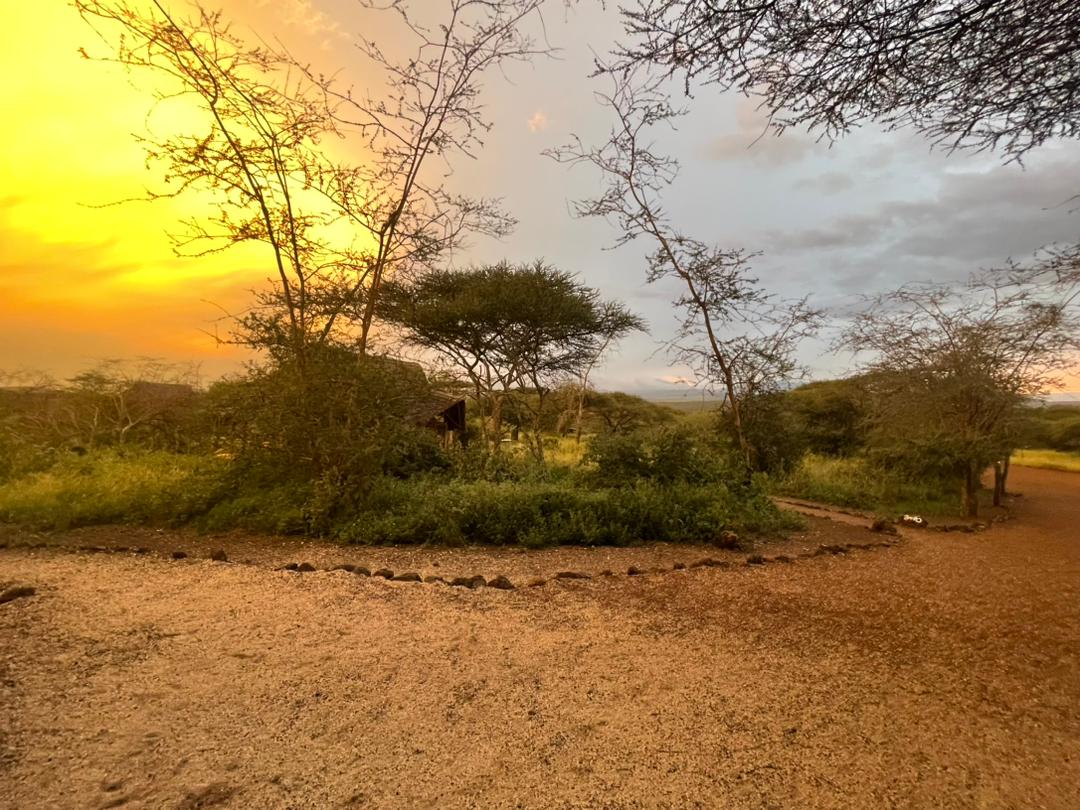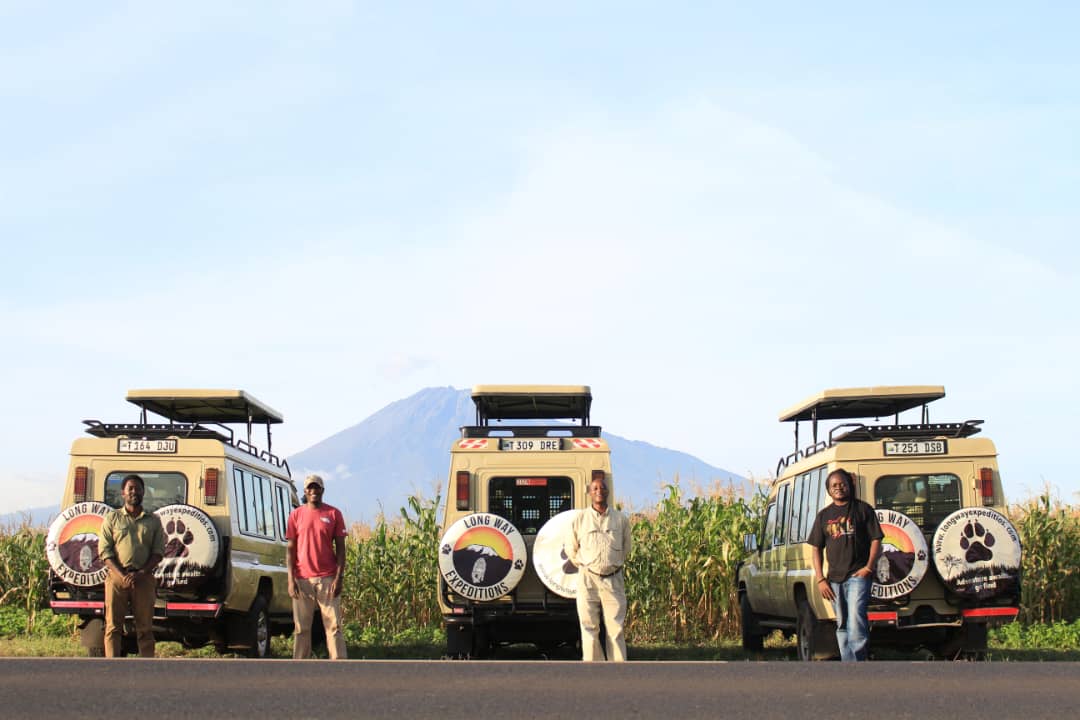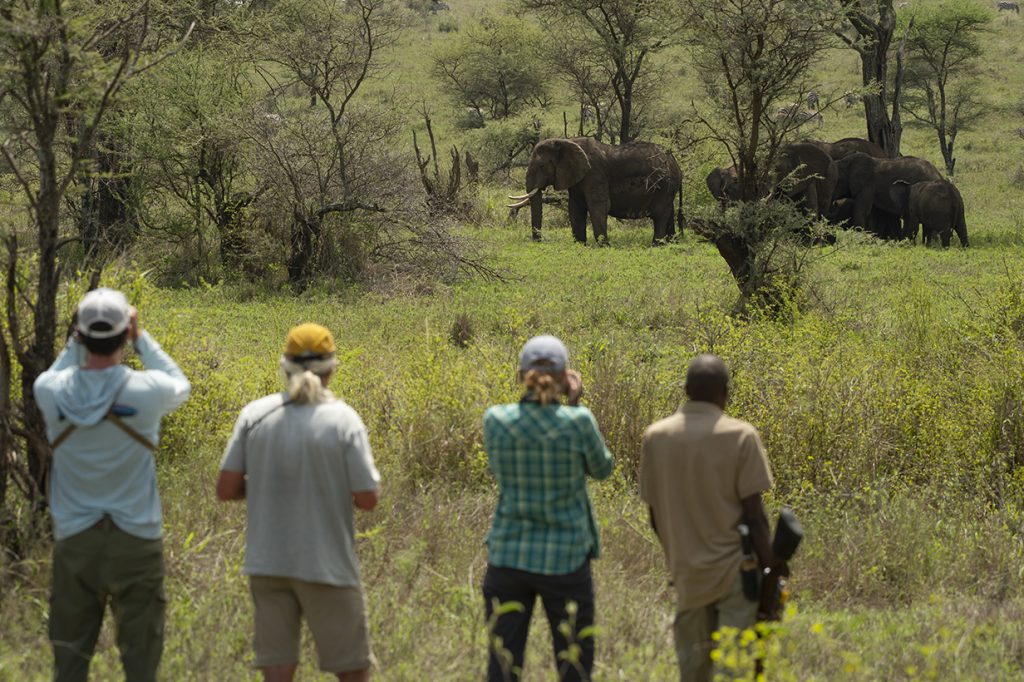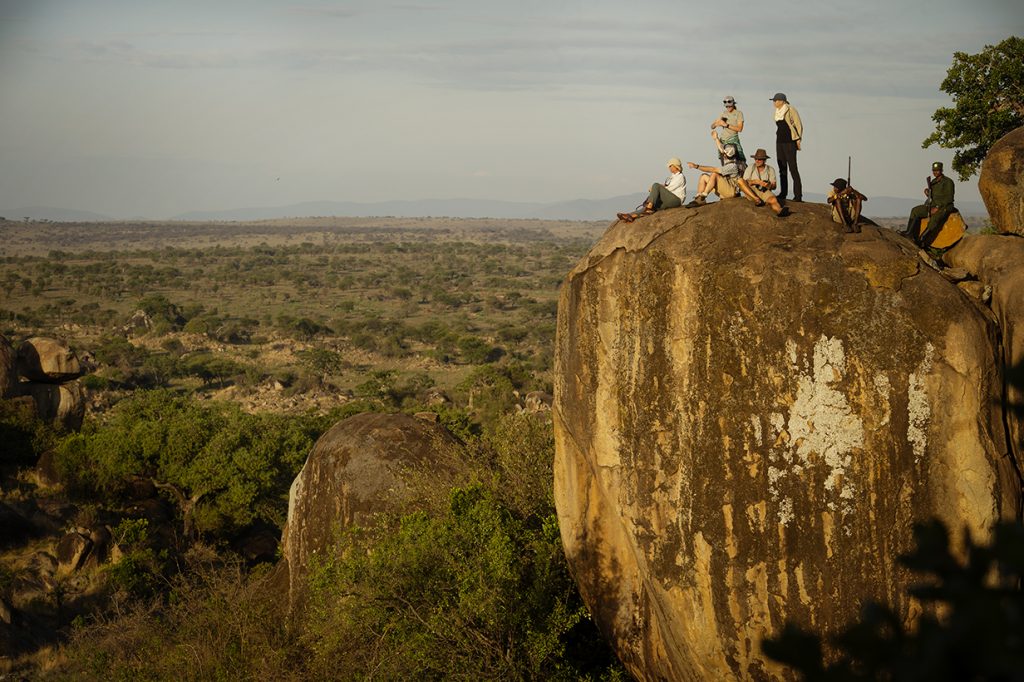Important information
1. Visa Requirements
Make sure that you have a valid passport whose expiry date is sufficient for you to be allowed to enter Tanzania. (Usually, the expiry date must be at least six months from the date of travel, for tourists, and longer for business travelers. Except for those travelling from certain African countries (and a few other countries), all visitors to Tanzania must have a valid visa. It is the responsibility of travelers to arrange this. Visas are best arranged in advance. If you are arriving at Kilimanjaro International Airport, without having arranged a visa in advance, please follow the procedure outlined below, to ensure that you get the correct visa and meet up with your driver-guide outside the arrival door:
Complete the visa request form (either on the flight or on arrival).
Join the queue for one of the visa counters – please don’t let yourself be assisted by anybody at the airport or be persuaded to give your visa money to anyone apart from the staff at the counter.
Pay for the visa – USD 100 per person for US nationals and USD 50 per person for nationals of other countries (visa fees are payable in cash ONLY and US bills should not be older than 2006).
Make sure that you get a receipt for this transaction – the receipt is yellowish- orange color with a silver seal sticker.
Verify that the number on the receipt is the same as the one written on top of the visa stamp on your passport.
Queue up for your fingerprints and passport.
Collect your luggage and leave by the exit.
Outside the exit door you will see our driver guide holding the” Long Way Expedition” signboard.
If you are arriving in Kenya, prior to transferring to Tanzania, you should familiarize yourself with any Kenyan visa requirements that may apply and ensure you obtain the necessary visa or transit visa for that country, too. Useful information regarding visas for Tanzania and Kenya can be found on the Tanzanian Embassy websites in your home country.
2. Yellow Fever
Yellow fever is a serious disease that is monitored internationally and therefore classified by the International Health Regulations (IHR), 2005 as a Public Health Emergence of International Concern (PHEIC). All PHEIC require specific monitoring procedures and measures that commensurate with and restricted to public health measures to meet the IHR, 2005 purpose. Tanzania is mapped by the World Health Organization as a low-risk country because no yellow fever virus has been isolated in the country. However, the abundance of yellow fever vector and other favorable ecological conditions pose potential risk for yellow fever if the virus is introduced into the country. Furthermore, being bordered with yellow fever endemic countries has also increased the vulnerability of Tanzania being infected with the virus.
To conform to IHR, 2005 requirements and safeguard public health security in Tanzania, Yellow fever vaccination is mandatory to travelers arriving from yellow fever endemic countries. This condition also applies to travelers subjected to long flight connection (transit) in yellow fever endemic country for twelve hours (12hrs) or more.
Yellow fever vaccination which is given as a single dose should be administered ten (10) days before entering the country. A single dose is capable of providing a life protection against the virus. Exemption due to medical reasons and age (above 60 and below 1 year) should seek medical attention in case of fever, headache and muscle and joint aches. Failure to produce a valid certificate of vaccination against Yellow fever to those eligible may lead to refusal of entry or vaccinated upon arrival and kept under close public health observation for not more than 10 days.
The cost of yellow fever vaccination is 50 USD for foreigners and 20,000 Tsh for residents and East Africa Community members. Government receipt shall be issued for any vaccination charges paid. The following are endemic countries for which a valid certificate of vaccination against yellow fever is a requirement for entry into Tanzania:
Note:
Foreigners coming from yellow fever endemic countries who will not produce a proof of yellow fever vaccination may lead to refusal of entry or vaccinated and kept under close public health observation for not more than 10 days.
For TANZANIANS travelling to yellow fever endemic countries ARE RECOMMENDED TO BE VACCINATED 10 days before travel.
For TANZANIANS coming from yellow fever endemic countries who will not produce a valid certificate of vaccination against yellow fever will be vaccinated upon arrival and kept under close public health observation for not more than 10 days
3. Money Matters
Visa, MasterCard, and American Express are widely accepted in Tanzania, albeit usually with a 5% surcharge, but note that American Express and Diners’ Club cards are not accepted. In certain places, such as Masai villages or local market, cash will be the only acceptable method of payment for souvenirs etc. Travelers should not rely on travelers’ cheques, as these are not accepted in Tanzania.
US Dollars are always the best currency to carry, and it is important that the bank notes you bring have been printed after the year 2006, as older notes are often not accepted.
4. ATM Machine
ATM are available in Kilimanjaro International Airport (outside the arrival exit door not inside the Airport), Arusha town, Moshi town, Manyara Karatu and Stone town in Zanzibar (Nungwi and other beach destinations are currently still not a part of ATM network).
5. Spending Money during Your Trip
Each traveler has different spending habits and therefore different cash requirements when on safari, to cover items such as drinks and souvenirs. You should bring the necessary amount of cash in US Dollars to cover your expected needs. Don’t forget to budget an amount in cash to cover tips.
6. Tipping
Tipping is of course discretionary but is an expected part of the way in which business is done in Tanzania. It counts as an expression of gratitude to those who – hopefully – have made your experience an unforgettable one and enables you to directly reward those people. Our passengers come from all around the world, with different cultural attitudes to tipping, but a tip is of great significance here in Tanzania and will be hugely appreciated by the recipient. We know that the act of giving of a tip can be a bit awkward and we would suggest that the best way to remove this ‘awkwardness’ is for each group member to put their tip anonymously into an envelope and for the envelopes to be presented by the group to the staff member. As a guideline, you should consider tipping at the following levels:
Driver guide: From $30 US per day
Local guide (for example, for a village tour): $15 US per group.
Accommodations: from $10 per night
For hotels/lodges/tented camps, please do not tip individual staff members, but instead use the ‘Tip Box’, which you should find at the reception of your accommodation. For guidance, you should consider tipping between $5-7 US per day, per guest, at each accommodation.
7. Travel Insurance
We would also recommend that your policy cover trip cancellation, personal liability, curtailment, and loss of luggage/personal effects. If your travel insurance has been arranged in conjunction with your credit card provider, we will require proof of purchase of the cover. Please contact your bank/credit card provider for details of the participating insurer, together with the level of cover provided and the emergency (24-hour) contact telephone number.
8. Flying Doctor Insurance
Long Way Expeditions can organize ‘Flying Doctor Insurance’ if you request. Flying Doctor insurance covers the provision of light aircraft with qualified doctors, able to evacuate patients from remote locations to hospital. Even though this is not a substitute for your travel insurance and is only available in conjunction with that insurance. If you wish to take out this additional insurance, please let us know. Long Way Expedition will need a copy of your passport, plus full details of your travel insurance company, including your policy number and their 24-hour contact telephone number. Bookings for ‘Flying Doctor Insurance’ should be made at the time of booking your trip.
9. Health
Our advice is that you should consult with your doctor or travel clinic well in advance, (and as a minimum, at least one month) before your departure. This is because some inoculations/medications must be taken well before your trip. Please note the following specific points, relevant to your health during your stay here in Tanzania:
You are responsible for having all necessary inoculations and taking all relevant medications.
Many areas in Tanzania attract mosquitoes and anti-malarial measures must be taken, in accordance with advice received from your doctor/travel clinic.
To minimize the risk of being bitten by mosquitoes, tsetse flies and other insects, you should wear long-sleeved shirts and long trousers at all times, use insect repellent (though this is not always effective against all insects) sleep under insect nets where these are provided, avoid bushes (as insects rest in these and bite if disturbed!) and wear white, beige or olive-colored clothes – as bright or dark colors attract tsetse flies in particular.
Please bring a travel first-aid kit with you, including sanitizing hand-gel/hand-wipes.
Please bring any tablets required for water purification, although bottled water is cheap, widely available and recommended. The local tap water should not be consumed.
Ensure that you keep properly hydrated during your safari, avoiding too many diuretics (e.g. coffee, tea, alcohol) as these tend to dehydrate. We advise that you should drink a minimum of 1.5 liter of water, per day while you are on safari.
You should use cream/spray to always protect yourself against the sun (even on cloudy days) and consider wearing a hat for the same purpose.
Bring any medication required to combat diarrhea, as this is common when travelling.
Yellow fever vaccinations are always required if arriving from a yellow fever area.
Some of our travelers worry about snakes, but encountering a snake while on safari is very rare.
People who suffer from back pain should seriously consider whether a safari is the right holiday for them. A safari necessarily requires many hours of travel, much of it on rough, unmade roads. While our vehicles are as comfortable as they can be, passengers who are liable to back pain may experience severe discomfort and should satisfy themselves as to the suitability of a safari (and take medical advice if appropriate) before booking.
10. Safety and Security
Safety advice is issued by most national governments and updated regularly, and we would suggest that all travelers check the appropriate website for updates both prior to booking, and again prior to traveling. (Traveling to countries against your own government’s advice can adversely affect the validity of certain travel insurance policies.) We advise travelers to use a money belt or neck wallet for the safe keeping of cash, passport, airline tickets and any other valuables. Please leave other valuables, such as jewelry, at home. Most accommodations provide safety deposit boxes, an excellent way of storing your valuables. We also advise you to keep a photocopy of your passport, separate from your actual passport, when you travel.
Long Way Expeditions reserves the right to make changes to, or even cancel, any part of the planned trip if in their opinion safety and security concerns deem this necessary. Your driver–guide will accompany you throughout your safari and it is important that you always follow his instructions, in the interests of safety. If you spend time in Arusha, you will find that most Tanzanians are friendly and helpful, but as in most cities in any part of the world, you should exercise caution. Carrying expensive cameras or jewelry or waving large amounts of cash around, is always a bad idea and will invariably attract unwanted attention. Be aware of people approaching you and trying to ‘befriend’ you: often these people are con-men and you should be polite but firm in saying ‘Hapana” NO to them. We would strongly advise using taxis after dark for trips to restaurants or other nighttime trips and would urge you to keep to the main streets during the daytime. We also advise that you travel in small groups, wherever possible. In the unlikely event that you find yourself in an area where a political protest or demonstration is taking place, we would advise you to leave the area immediately, as these can turn violent or provoke counterdemonstrations or reaction from the police.
Please note that you should use your own judgment when choosing activities or excursions, which do not form part of the trip you have booked with us. We can offer your assistance in choosing how to spend your free time, but neither Long Way Expeditions nor any of its representatives can provide any guarantee about the safety or suitability of any activities or excursions, nor about the operators who organize these. As in all countries, taking photos of police stations, border crossings, immigration controls, army barracks, military personnel or checkpoints, airports or political demonstrations is never a good idea, often illegal, and very likely to land you in trouble with the authorities. Swimming, snorkeling and other water-based activities are always undertaken at your own risk.
11. Children on Safari
Children aged 3years and older are welcome on our tours but must always remain the parents’ responsibility. The lodges and tented camps do not have babysitting facilities.
12. Driver Guides
You will spend a great deal of time with your highly experienced driver-guide during your safari and for most visitors, the success of the safari is greatly enhanced by their interaction with him. We believe that we have the best, most knowledgeable, most professional driver-guides in the industry – and that much of our traveler’s feedback reflects this opinion.
Your driver-guide will ensure that you see as much wildlife as possible, assist in finding you the best photo-opportunities, drive you safely around the safari locations, be available to answer your every query and generally to help you with any difficulties you encounter. We encourage you to use your driver-guide as a ‘walking encyclopedia’: ask him not only about the wildlife, but also about Tanzanian culture, its customs and its people.
13. Vehicles, Road Conditions and Journey Times
This is Africa and you are on safari, road conditions are sometimes not what you are used to, and journeys take longer than they would in your home country. Not every road here is tarmacked and some can be rough. (For anyone who is liable to back pain. For example, Kilimanjaro Airport to Arusha, Arusha to Tarangire, Tarangire to Manyara and the road to Ngorongoro Gate are all on paved roads, but any time spent travelling in the Serengeti will be on rough roads. We can reassure you that our safari vehicles are custom-built, rigorously maintained, and regularly serviced. They are the best in the business. Very rarely, as can happen anywhere, vehicles break down, but we always have a plan B designed to minimize any disruption to your scheduled itinerary. If a vehicle cannot be repaired quickly on the spot, then a replacement vehicle is always made available. All vehicles are equipped with radios.
14. What to Take: Luggage Allowance and Clothes
It’s true: nothing can fully prepare you for the experience of an African safari. But that doesn’t mean you can’t try. I mean, you’ve already got the proper attitude—love for wild things, sense of adventure, risk-taking—but the real question I know you’re asking is: how many pairs of underwear should I pack? Well, we’re not going to advise you on undergarments, but we have put together a list of the Top 10 Essential Items to Pack for your Safari. These recommendations come from decades of safari experience, from the experts who guide them and the clients who ride them. Look:
Favorite Shoes: Sturdy shoes are important for safari, but don’t sacrifice comfort just because you think overbuilt commando boots are necessary. They’re not. Your favorite hiking shoes or active footwear will work just fine.
Clothing: Colors, Wind, and Warmth: For clothing, choose lightweight, moisture-wicking materials, and think natural colors (olive, tan, etc.) that won’t distract wildlife or attract tsetse flies (bugs love bright colors!) Also, you may be imagining safari like this: hot and dry, from dawn until dusk. This isn’t the case. Early morning and late afternoon game drives are some of the best times for wildlife viewing, and it’s not uncommon for these times to be a little chilly. Don’t forget to pack a warm, lightweight jacket, raincoat, and windbreaker (think open-air 4WD safari vehicle!)
Ngorongoro, Serengeti, Tarangire: These are vast landscapes teeming with more world-class wildlife than you can imagine, and its drama can sometimes unfold at a distance. Even when that pride of lions is disemboweling a wildebeest next to your safari vehicle, a pair of binoculars can really heighten the experience—to witness those razor-sharp teeth, the eyes, and the texture. Not every tour operator supplies binoculars so pick up a modest pair before you go.
Functional Bags: While on safari, having the ability to access your things quickly is critical (“I see a cheetah! Quick, hand me the binoculars from my bag!”). Choose a
Combination of a trusted daypack and a larger, weather-resistant bag that can withstand the elements and constant packing/unpacking.
Camera Extras: Batteries, memory cards, plug converters, lens cleaners—better to gather these before you arrive as they might be hard to find in country. Who wants to spend precious safari time trying to find the right plug-in adapter, anyway?
Headlamp: With early morning game drives and relaxing evenings at your bush accommodations, it’s always helpful to have a reliable source of light. I find headlamps to be the most convenient option because they enable you to be hands-free as you rifle through your bag for that windbreaker, bird guide, or snack. They’re cheap, minimal, and incredibly handy, too.
Sunscreen: This is the thing about safaris: once you’ve become immersed in this landscape, you’ll want to seize every waking moment—it’s just too big and beautiful not to. But that means long days, and long days mean several hours in the elements at a time. Strong sunscreen is an absolute must.
15. Storing Your Luggage
If you wish to leave some luggage behind before you go on your safari, you can leave it in hotel luggage’s rooms at no extra charge. This will be of benefit to those who are combining their safari with a trip to Zanzibar immediately afterwards or a Kilimanjaro climb.
16. Laundry
Some camps and lodges offer a laundry service, for an additional charge. Please note that, where you are arriving at your accommodation in the late afternoon and then leaving the following morning, it can be very difficult to have your laundry washed and dried before your departure. (Washing is by hand and drying relies on sunlight.) It will be best to plan to have your clothes washed at camps/hotels where you are staying for more than one night, to give the staff enough time to do your laundry. Bringing light, quick drying clothes with you is advisable. Please always keep a list of all items you send to have laundered.
17. Meals
When you’re out on safari, all meals (breakfast, picnic-lunchbox, and dinner) are included in your trip price and are provided by the relevant safari camp/hotel/safari lodge in which you are staying.
Please note, however, that the first night’s accommodation in Arusha is on a bed and breakfast basis and guests must make their own arrangements and pay for any lunches or dinners on their first day. (The simple reason for this is that at the time of you booking your safari, Long Way Expeditions are not aware of your flight arrival time.) Your Arusha hotel or lodge will be able to give you restaurant recommendations., during your safari, all meals are prepared using the best available local produce, allowing you to enjoy regional specialties at their best.
18. Balloon Safari
Visitors may wish to take a balloon safari, and these are available at Ndutu, Serengeti and Tarangire. Prices vary and although the balloon safaris are not operated by Long Way Expeditions, we can book these for you.
19. Masai Village
As well as wildlife, any trip to Tanzania would be incomplete without encountering the Tanzanians themselves.
Warm, friendly, diverse people with a wealth of tradition which most of our visitor’s find truly fascinating. A visit to a Masai village is a highlight for some visitors, a great insight into these people’s culture, but inevitably some villagers see travelers as an opportunity to sell their wares. Some traveler’s find this annoying and it is advisable to skip the optional village trip if you are one of those irritated by this practice. The cost to visit the village is $50 per vehicle. If you want to include the visit to Masai Village, please email us.
20. The Great Migration
The Great Migration is one of the world’s true natural wonders; for some travelers, it is a life-changing experience. Please note that the time of year determines whether and where the migration can be witnessed and for those travelers who wish to include a sight of this phenomenon in their safari trip, we recommend booking a ‘tailor made’ safari, details of which are on our website. Using this facility and specifying that you want to see the Great Migration allows us to help you organize your trip accordingly. Please seek our advice on the best time to visit, before making your booking.
21. Feedback
Our business is only successful if our travelers are satisfied. We genuinely want your open, honest feedback, as this enables us to review our performance and procedures and to improve our service. While we appreciate that in the modern world everyone is asking for your opinion, for many of our travelers a safari will be a ‘once-in-a-lifetime – experience and we are determined that it will be as good as it can be.









